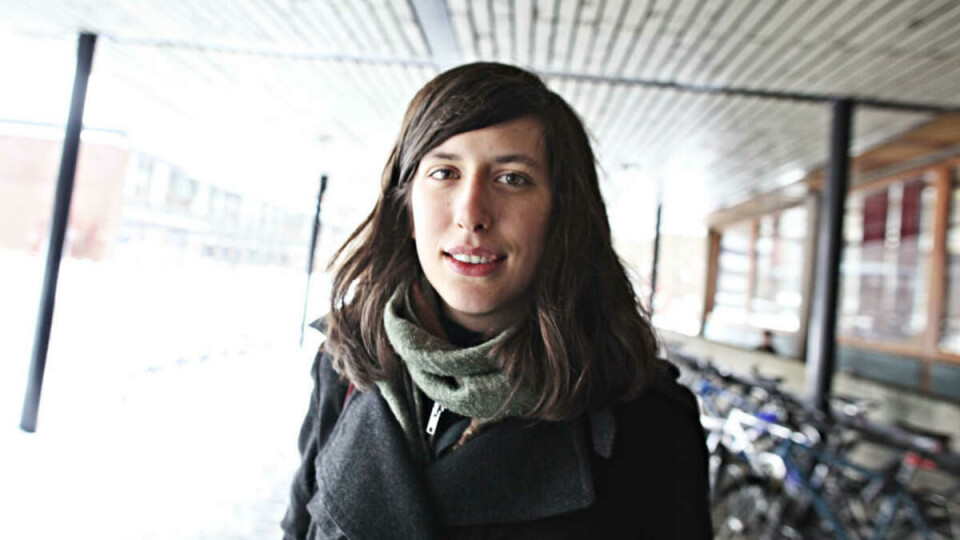
Bonus funds for Norwegian Erasmus students
While Erasmus students who come to Norway have to make do with a relatively small amount of financial support from their native country, Norwegian Erasmus students will be able to share to 5 million kroner in overdue payments. The reason for this is unused scholarship funds.
The Quality Reform of higher education demands that institutions arrange things in a way that allows students to integrate studies abroad into their degrees. Despite this, only a minority of students go abroad. The endorsement of the Erasmus scheme, which is without a doubt the largest higher education exchange programme in Europe, has not achieved satisfactory results, and Norwegian universities and university colleges are having problems filling up the available places.
However, the Norwegian students who do choose to go abroad can benefit financially from this. Espen Kheradmandi (22) was an exchange student at the Paris-Sorbonne University last year. He received between 4000 and 5000 kroner of his Erasmus scholarship after the study period was over.
– We were told that there were funds left over, says Kheradmandi (22), who is a student at the Faculty of Social Sciences. He adds that he was very surprised to receive this payment.
Katharina Kickinger (20) from Austria is currently on an Erasmus exchange in Norway, and will be spending one term at the Faculty of Humanities. She says that most of the people she knows have either been on or plan to go on an exchange through the Erasmus programme, but she does not know anyone in Austria who has received such a large late payment.
– No, I doubt that, says Kickinger, who has also heard stories about exchange students who have far less money in their pockets.
– It seems like there is a big distance between the EU system and those who portion out the money. I spoke with a Hungarian student here in Oslo who had still not received the scholarship money they were entitled to for the first two months.
Denies differential treatment
The Norwegian Centre for International Cooperation in Higher Education (SIU) has the main responsibility for the Erasmus programme in Norway. Coordinator Stian Hofslett Thowsen explains that the leftover funds are being paid out for practical reasons.
– This is a result of the situation that has arisen after we have made an estimate of how many students we think will go abroad. We are paying out this money in order to use up the funds granted to us.
Joachim M. Svendsen of the European Commission Delegation to Norway and Iceland states in an email that «as far as we know, this practice is unproblematic and does not violate any regulations».
– But this may lead to differential treatment of students coming to Norway and students travelling from Norway. Couldn’t this money be spent on something else?
– No, we are given funds from the EU and SIU, and we are not allowed to spend them on anything else, Thowsen replies. According to Thowsen, the main responsibility for the deviation between the expected number of exchange students and the actual number of those who take advantage of the scheme lies with the educational institutions themselves.
– It is up to each individual institution to decide how many places they want to make available, he explains. Yet SIU regulate the number of students that can go abroad, which in turn is an important condition for how much money the EU hands out.
– We have a national Erasmus committee that sets a target number each year. Our target for the current period is 1500, says Thowsen, who admits that the SIU wishes that a far greater number of students would take advantage of the exchange scheme.
– All about priorities
International officer at the Norwegian Association of Students (StL), Ina Tandberg, is also part of the Bologna expert group, a committee responsible for quality control in the higher education sector. She thinks that the leftover scholarship money is a benefit for Norwegian students and sets a good example in relation to the use of the EU funding. Yet she is concerned that not enough is being done to fill up the quota estimated by the Erasmus committee each year.
– This is about how institutions prioritize funding, Tandberg claims, and adds that StL has several views on why the exchange places are not being filled.
– We think that the information that exists is too inaccessible, and that it is written in a complicated way. In addition to this, there is little room for studies abroad in many programmes of professional study.
































